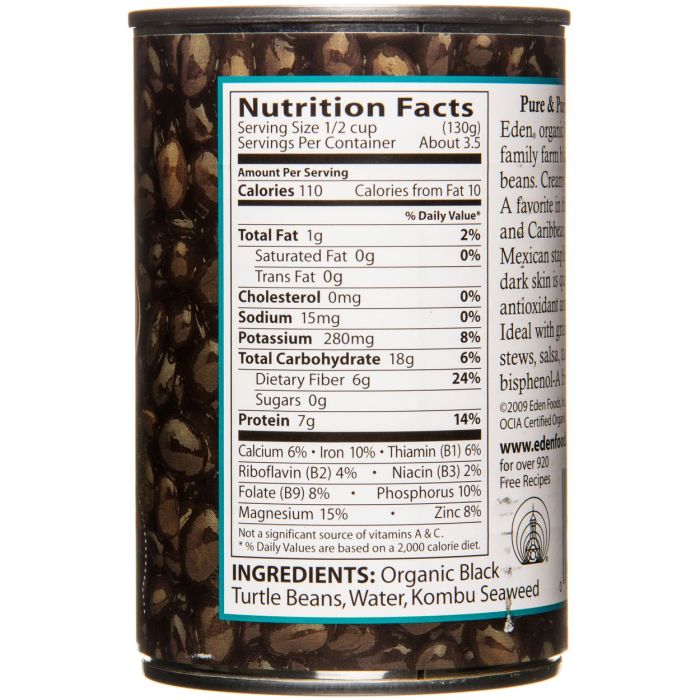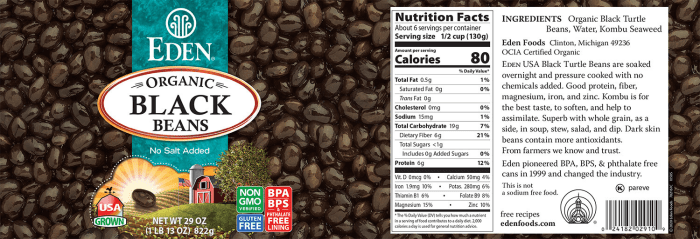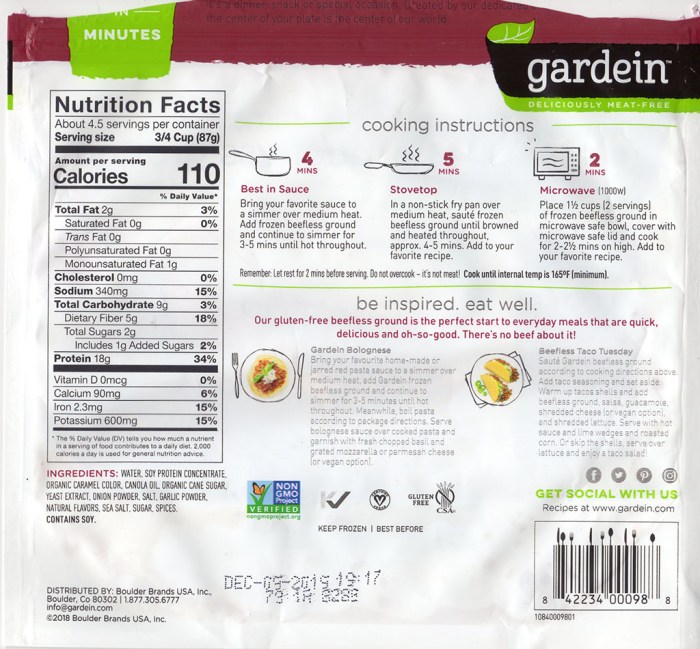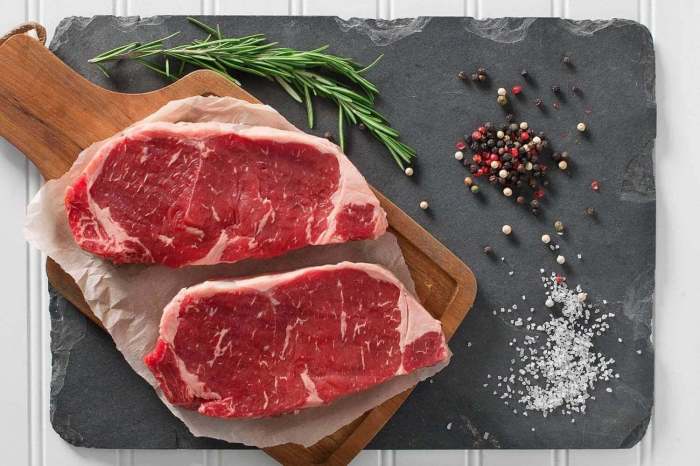Sodium Content and Health Implications: Canned Black Beans Nutrition Facts

Canned black beans nutrition facts – Okay, so you’re all about that healthy life, right? But those convenient canned black beans? They can pack a surprising sodium punch. Let’s break down why that matters and how to navigate the salty situation.
Canned black beans often contain a significant amount of sodium, typically ranging from 150 to 400 milligrams per serving, depending on the brand and processing methods. High sodium intake is linked to various health problems, including high blood pressure (hypertension), which is a major risk factor for heart disease, stroke, and kidney disease. Even if you’re generally healthy, consistently consuming high-sodium foods can gradually increase your risk over time.
Think of it like this: a little bit of extra salt each day adds up, just like those extra
-krupuk* at your
-makan siang*.
Okay, so you’re checking out canned black beans, right? They’re packed with fiber, which is fab. But if you’re also looking for lean protein, you might wanna check out the nutrition facts for white meat too – chicken breast is a total fave. Both are great for your diet, but black beans are also super versatile; you can add them to anything!
Reducing Sodium Intake from Canned Black Beans
Reducing your sodium intake from canned black beans is totally doable. The key is to be mindful of your choices and employ a few simple strategies.
One of the easiest ways is to rinse your beans thoroughly before using them. This helps remove some of the excess sodium that’s added during the canning process. Think of it as a quick, easy detox for your beans! Another smart move is to opt for low-sodium or no-salt-added varieties. Many brands are now catering to health-conscious consumers by offering options with significantly reduced sodium content.
Check those labels carefully, it’s a game changer.
Sodium Content Comparison of Canned Black Beans
To give you a clearer picture, let’s look at a comparison of the sodium content across different brands. Remember, these figures can vary depending on the batch and the specific serving size stated on the can, so always check the label before you buy. This is just a snapshot based on typical market findings in South Jakarta.
| Brand | Sodium Content (mg per serving) | Serving Size (grams) | Price per serving (IDR) |
|---|---|---|---|
| Brand A | 250 | 150 | 3000 |
| Brand B (Low Sodium) | 100 | 150 | 3500 |
| Brand C | 350 | 170 | 2800 |
| Brand D (No Salt Added) | 50 | 150 | 4000 |
Glycemic Index and Blood Sugar Control

Okay, so you’re all about that healthy lifestyle, right? Knowing your GI issuper* important, especially if you’re watching your blood sugar. Let’s talk black beans – those little guys pack a nutritional punch and can actually be your secret weapon in managing your blood sugar levels.Black beans have a relatively low glycemic index (GI), generally ranging from 29 to 30.
This means they cause a slow and gradual rise in blood sugar levels compared to foods with a high GI. This slow release of glucose is beneficial for preventing those pesky blood sugar spikes and crashes that can leave you feeling sluggish and craving more sugary treats. The lower the GI, the better it is for your blood sugar control.
Fiber’s Role in Glycemic Response, Canned black beans nutrition facts
The high fiber content in black beans is the main reason behind their low GI. Fiber slows down the digestion and absorption of carbohydrates, preventing a rapid surge in blood sugar. Think of it like this: fiber acts as a natural brake, preventing your blood sugar from going on a rollercoaster ride. This steady release of glucose keeps your energy levels stable and prevents those mid-afternoon energy slumps.
It’s all about that consistent energy flow, – kawan*.
Incorporating Black Beans for Better Blood Sugar Control
Here’s the deal: you don’t have to be a culinary genius to add black beans to your diet and manage your blood sugar. It’s all about smart swaps and delicious combinations.
- Swap out some rice or pasta: Add a serving of black beans to your favorite rice bowl or pasta dish. This simple substitution significantly lowers the overall glycemic load of the meal.
- Black bean burgers: A healthier and more satisfying alternative to beef burgers. The fiber in black beans helps you feel full for longer, which helps with managing cravings.
- Black bean salsa: A delicious and refreshing topping for grilled chicken or fish. The combination of beans and other vegetables provides a balanced meal with low GI.
- Soups and stews: Adding black beans to your soups and stews not only adds flavor and texture but also increases the fiber content, promoting better blood sugar control. Think hearty lentil soup with a can of black beans thrown in – yum!
- Salads: Black beans add protein and fiber to your salads, making them more filling and nutritious. A simple black bean and corn salad is a perfect example.
FAQ Corner
Are canned black beans a good source of iron?
Yes, canned black beans are a good source of iron, although bioavailability can be affected by other dietary factors.
Can I freeze canned black beans?
While not ideal, canned black beans can be frozen after rinsing and draining. Their texture may change slightly.
How long do canned black beans last after opening?
Opened canned black beans should be refrigerated and consumed within 3-5 days.
Are there any potential interactions between black beans and medications?
Black beans’ high fiber content may interact with certain medications. Consult a healthcare professional if you have concerns.


